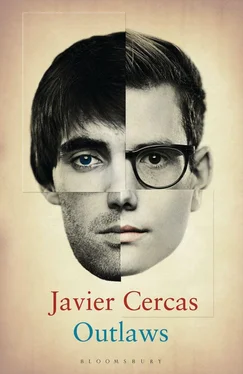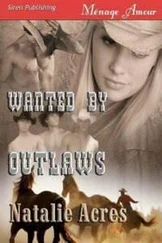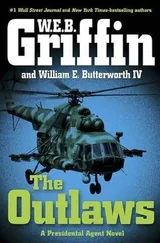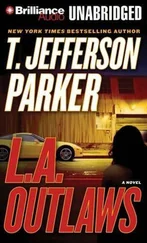For Raül Cercas and Mercè Mas.
For the gang, for forty-odd years of friendship.
We get so used to disguising ourselves to others that, in the end, we become disguised to ourselves.
François de la Rochefoucauld
‘Shall we begin?’
‘Yes, but first let me ask one more question. The last one.’
‘Go ahead.’
‘Why have you agreed to write this book?’
‘Didn’t I tell you already? For the money. I’m a writer, that’s how I make my living.’
‘Yes, I know, but is that the only reason you agreed?’
‘Well, it’s not every day you get an opportunity to write about a character like El Zarco, if that’s what you mean.’
‘You mean you were interested in Zarco before you were asked to write about him?’
‘Of course, isn’t everybody?’
‘Yeah. Anyway, the story I’m going to tell you isn’t Zarco’s story but the story of my relationship with Zarco; with Zarco and with. .’
‘Yes, I know, we’ve talked about that too. Can we begin?’
‘We can.’
‘Tell me when you met Zarco.’
‘At the beginning of the summer of 1978. It was a strange time. Or that’s how I remember it. Franco had died three years earlier, but the country was still governed by Franco’s laws and still smelled exactly the same as it did under Franco: like shit. I was sixteen years old back then, and so was Zarco. We lived very near each other, and very far away from each other.’
‘What do you mean?’
‘Do you know the city?’
‘Roughly.’
‘That’s almost better: the city today has very little in common with what it was back then. In its way, Gerona at that time was still a post-war city, a dark, ecclesiastical dump, encircled by the countryside and covered in fog all winter; I’m not saying that today’s Gerona is better — in some ways it’s worse — I’m only saying it’s different. At that time, for example, the city was surrounded by outlying neighbourhoods where the charnegos lived. The word’s fallen out of fashion, but in those days it was used to refer to immigrants from other parts of Spain who’d come to Catalonia, incomers, people who generally didn’t have a cent to their name and who’d come here to try to get by. . Though you already know all this. What you might not know is, as I was saying, at the end of the seventies the city was ringed by charnego neighbourhoods: Salt, Pont Major, Germans Sàbat, Vilarroja. That’s where the dregs accumulated.’
‘That’s where Zarco lived?’
‘No: Zarco lived with the dregs of the dregs, in the prefabs, los albergues provisionales , temporary housing on the city’s north-east border, set up in the fifties for the influx of workers and still in use somehow. And I lived barely two hundred metres away: the difference is that he lived over the border, across from where the River Ter and La Devesa Park marked the divide. I lived on Caterina Albert Street, in the neighbourhood now called La Devesa but back then it was nothing or almost nothing, a bunch of gardens and vacant lots where the city petered out; there, ten years earlier, at the end of the sixties, they’d put up a couple of isolated tower blocks where my parents had rented a flat. In a way it was also an incomer neighbourhood, but the people who lived there weren’t as poor as most charnegos usually were: most of the families were those of middle-class civil servants, like mine — my father had a low-level position working for the council — families who weren’t originally from the city but who didn’t consider themselves charnegos and in any case didn’t want anything to do with real charnegos or at least with the poor ones, the ones in Salt, Pont Major, Germans Sàbat and Vilarroja. Or, of course, with the people who still lived in the prefabs. In fact, I’m sure that the majority of the people who lived on Caterina Albert (not to mention the people from the city) never set foot anywhere near the prefabs. Some perhaps didn’t even know they existed, or pretended not to know. I did know. I didn’t really know quite what they were and I’d never been there, but I knew they were there or that it was said they were there, like a legend that nobody had confirmed or denied: actually, I think that for us, the neighbourhood kids, the very name of los albergues added a touch of prestige by evoking an image of refuge in inhospitable times, like an inn or a hostel in a tale of epic adventure. And all this is why I told you that back then I lived very near and very far away from Zarco: because there was a border separating us.’
‘And how did you cross it? I mean, how did a middle-class kid make friends with a kid like Zarco?’
‘Because at sixteen all borders are porous, or at least they were then. And also by chance. But before I tell you that story I should tell you another one.’
‘Go ahead.’
‘I’ve never told anybody this; well, nobody except my analyst. But unless I do you won’t understand how and why I met Zarco.’
‘Don’t worry: if you don’t want it to go in the book, I won’t use it; if I do use it and you don’t like how it sounds, I’ll cut it. That was the deal, and I’m not going to break it.’
‘OK. You know what? People always say that childhood is cruel, but I think adolescence is much crueller. In my case it was. I had a group of friends on Caterina Albert: my best friend was Matías Giral, but there was also Canales, Ruiz, Intxausti, the Boix brothers, Herrero and one or two others. We were all more or less the same age, had all known each other since we were eight or nine, lived our lives in the street and went to the school run by the Marist Brothers, which was the closest one; and of course we were all charnegos , except for the Boix brothers, who were from Sabadell and spoke Catalan among themselves. In short: I didn’t have any brothers, just one sister, and I don’t think I’m exaggerating if I say that in practice those friends filled the vacant role of brothers in my childhood.
‘But in adolescence they stopped doing so. The change began almost a year before I met Zarco, when a new kid came to the school. His name was Narciso Batista and he was repeating his second year of high school. His father was chairman of the council and my father’s boss; we knew each other from having crossed paths a couple of times. So, also because our surnames meant we sat at the same desk (in the class list Cañas followed Batista), I was his first friend at the school; thanks to me he made friends with Matías, and thanks to Matías and me he made friends with the rest of my friends. He also turned into the leader of the group, a group that up till then had never had a leader (or I hadn’t been aware that it did) and perhaps needed one, because the essential feeling of adolescence is fear and fear needs leaders with which to fight it. Batista was a couple of years older than us, physically strong and knew how to make himself heard; besides, he had everything any teenage charnego might desire: to start with, a solid, rich, Catalan family (although he considered himself very Spanish and despised everything Catalan, not to mention catalanista , especially if it came from Barcelona); also, a large apartment in the new part of the city, a tennis-club membership, a summer house in S’Agaró and a winter one in La Molina, a 75cc Lobito to get around on and his own place on La Rutlla Street, a tumbledown old garage to spend the evenings listening to rock and roll, smoking and drinking beer.
‘Up to here, everything’s normal; from here on in, nothing was. I mean in just a few months Batista’s attitude towards me changed, his sympathy turned into antipathy, his antipathy into hatred and his hatred into violence. Why? I don’t know. I’ve often thought I was simply the scapegoat Batista invented to ward off the group’s essential fear. But I really don’t know; the only thing I know is that in a very short time I went from being his friend to being his victim.
Читать дальше












